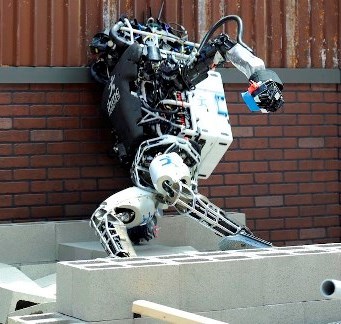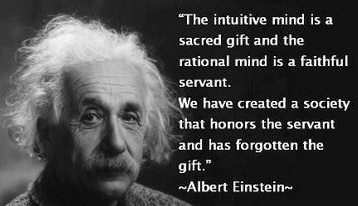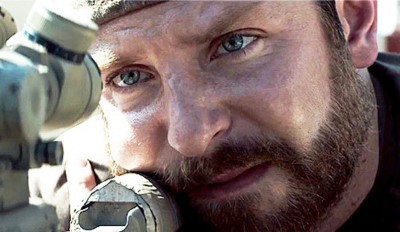Jeremie Averous's Blog, page 101
August 20, 2015
How to Discover More About People: Play!
Long ago, Plato said: “You can discover more about a person in an hour of play than in a year of conversation.”
 An unhappy player that expressed his disappointment physically
An unhappy player that expressed his disappointment physicallyIt is particularly true I find when it comes to the emotional reactions of people who lose, or even simply by observing how much people can get involved in the game.
It is to a point where it is surprising that recruiters haven’t thought to include group games as part of their selection process (some do, but they are rare). It would also allow to observe whether people are team players, or rather seek to demonstrate their own performance. Games and playing are used extensively in teambuilding and leadership development programs though, and that often allows to know people much better!
Want to know people better, quickly? Set up a team game!

August 18, 2015
Why Basic Motor Skills Are So Hard To Learn by Robots
Moravec’s paradox says that “contrary to traditional assumptions, high-level reasoning requires very little computation, but low-level sensorimotor skills require enormous computational resources“. In other words, our unconscious capabilities are much more difficult to implement than our high level, conscious abilities.
 A semi-autonomous robot having balance problems at the 2015 DARPA challenge
A semi-autonomous robot having balance problems at the 2015 DARPA challengeAs Wikipedia explains, “One possible explanation of the paradox, offered by Moravec, is based on evolution. All human skills are implemented biologically, using machinery designed by the process of natural selection. In the course of their evolution, natural selection has tended to preserve design improvements and optimizations. The older a skill is, the more time natural selection has had to improve the design. Abstract thought developed only very recently, and consequently, we should not expect its implementation to be particularly efficient“.
So while computers became better at chess than humans a few years ago, getting a robot to reproduce our moves will still require some years, as shown in this video from the 2015 DARPA humanoid robot challenge.
There is not reason why we won’t be able to built fully balanced robots in a few years (it took a decade from the first DARPA autonomous driving vehicle challenge to have fully functioning prototypes on the roads).
Yet it is really amazing to realize that those deeply engrained bodily functions we take for granted are the most difficult to reproduce! – whereas we think they are rather low-level functions.

August 15, 2015
Why We Need Intuition More Than Ever Before
Intuition is one of the most important of our capabilities. In our ever more complex world, it becomes indispensable. As Albert Einstein said, “The intuitive mind is a sacred gift and the rational mind is a faithful servant. We have created a society that honors the servant and has forgotten the gift”.
 Intuition is at the source of creativity. Creativity is the hard currency of the Collaborative Age. Value and compensation will increasingly be for creativity, while the application of rationality – processes – will become a commodity (and often taken up by robots).
Intuition is at the source of creativity. Creativity is the hard currency of the Collaborative Age. Value and compensation will increasingly be for creativity, while the application of rationality – processes – will become a commodity (and often taken up by robots).
What Einstein highlights is how much we still tend to hide the inputs from intuition when we describe for example how we developed an idea or worked on any problem. Yes, the final output might appear rational in hindsight, but the insight is often pure intuition.
Learn to respect and develop your intuition, because that’s what is going to make the difference in the Collaborative Age.

August 13, 2015
Why We Should Limit our Usage of Instant Messengers
As you know, I am quite keen on new communication technology and I love the possibilities brought to us by the Fourth Revolution. At the same time, minimizing attention-disturbing interruptions is essential for productive work. As a result, I find myself taking an increasingly strong position against all sorts of Instant Messaging Apps, in particular on the phone.
 These are all attention killing, important work avoidance beasts. Learn to tame them!
These are all attention killing, important work avoidance beasts. Learn to tame them!For example lately I had an argument with an acquaintance because I did not want to install on my phone a widely known chat app. Of course it makes communication easy, free and instantaneous. My point was that I did not want to be interrupted constantly, and that I try to keep significant chunks of time available for focus. Therefore, I prefer asynchronous communication means such as email, and limit drastically instant messaging tools. I keep old-fashioned SMS for emergencies, because it’s harder and it costs a bit of money – so that people think twice before using it!
Have you ever tried to focus on meaningful work while responding to Instant Messages? I can’t. As a result I tend to lose time or do things of minor importance in the meantime. Instant Messenger is supposedly designed to save time, but it distracts us from doing the important stuff.
I thus minimize those tools, remove all sorts of notifications on my phone, and for those that are unavoidable, I use the functions that allow to be undisturbed while I do important work.
Discipline is required for instant messaging tools. What is your’s?

August 11, 2015
How Mindfulness is a Reaction to Stimuli Overload
The last years have seen a tremendous development of mindfulness, including on the workplace where it becomes mainstream. It happens at the same time where our attention is increasingly diverted through various devices, notifications and information availability. This is not chance – I believe it is the symptom of a deep struggle. And it is a major issue that we need to deal with as we enter deeper into the Fourth Revolution.
 Many mindfulness programs are based on the premise of mindfulness training whereby we take some pauses, cutting ourselves off from the demands of modern life for a few minutes for example by meditating. This regular exercise reinforces our ability to focus and manage our thoughts.
Many mindfulness programs are based on the premise of mindfulness training whereby we take some pauses, cutting ourselves off from the demands of modern life for a few minutes for example by meditating. This regular exercise reinforces our ability to focus and manage our thoughts.
The question is whether this practice is sufficient, or whether it just reflects the need to find some balance. Shouldn’t we learn to manage our attention on a continuous basis, not just by taking some pauses off? Mindfulness should thus become an ongoing practice, and this will need to become ingrained in our way of life.
A major issue is that our children do not learn so much at school today how to deal with their focus and attention when faced with the multiplying stimuli of modern life.
Mindfulness is a clear symptom of a societal issue, and the question remains open if the current practices resolve it fully. I believe that more progress will have to be made to define how to deal with modern stimuli overload and find the practices that will be required by all in the Collaborative Age.

August 8, 2015
Why Mastering the Flinch is Vital in Today’s World
I read a very interesting short book called The Flinch, by Julien Smith (available only on Kindle at this stage apparently). The concept is simple. “It’s about an instinct— the flinch— and why mastering it is vital. The book is about how to stop flinching. It’s about facing pain.”
 Boxing, a sport where overcoming the flinch is essential for success
Boxing, a sport where overcoming the flinch is essential for successA flinch is ‘to make a sudden, involuntary movement in response to a (usually negative) stimulus‘ (Wiktionary definition). The concept of the book is that this reflex is what beats us in a variety of situations in our current life.
Of course, the flinch was a useful survival reflex in the wild, but in today’s society, it becomes an impediment in a variety of situations. The split second hesitation or pull back leads to being overwhelmed by others or even creates dangerous situations for the self. An example developed in the book is boxing, where training is a lot about overcoming the flinching reflex so as to be able to push into the opponent.
According to Julien Smith, “The flinch is your real opponent, and information won’t help you fight it. […] It’s why the monolithic company gets wiped out by a lean startup— because the big company culture avoids the hard questions. It’s the reason you make the wrong decision, even though you may know what the right one is.”
The flinch is what prevents us from taking risks and from responding quickly to new situations. We need to be able to overcome the reflex in many situations. And it can only be learnt by practicing. When do you start?

August 6, 2015
How to Avoid the Comfort Zone Fallacy
Continuing on the previous post ‘Why Avoid the Organizational Comfort Zone Retreat Fallacy‘, let us now consider stress and the tendency to retreat to our comfort zone on a personal level, in particular when we stretch out and we happen to encounter a storm.
 Freaking out? Beware of the comfort zone fallacy!
Freaking out? Beware of the comfort zone fallacy!Our comfort zone is a zone where we have been successful, possibly recognized. It is a zone where we think we are protected. Hence our tendency to try to revert to it when things go bad.
A common, personal example: I have been raised to think that salaried employment is a safe zone, whereas being on one’s own is a dangerous adventure. Thus when things go stormy I tend to think I should revert to salaried employment as soon as possible. I know that it is an obsolete concept, I observe around me that employees are no safer, but I still can’t help to have these thoughts – so much I was conditioned into this idea of the Industrial Age about being an employee.
We all need to have safe havens, where we feel supported. It is typically our family circle. It is not the same as our comfort zone; actually part of our families might not be overly supportive of some efforts we make to stretch out. Yet we can count on our safe haven. This should be the support we need to overcome the natural tendency to run back to our ‘comfort zone’ when things go bad.
The more I think about it, I think that if you’ve stretched sufficiently outside of your comfort zone, you should rather try to go even further. Because:
that is what will make a significant difference with 99% of the people who freak out and flee back to comfort,
that’s the moment to maintain the maximum flexibility and adaptability – not to enclose oneself in a closed, defensive location.
When the storm comes, create the difference. Leverage on your safe haven to stretch even more out of your comfort zone. Remain flexible, and find your way in the storm.

August 4, 2015
Why Avoid the Organizational Comfort Zone Retreat Reaction
In the past months I have observed astonishing reactions from various leaders and organizations to an unexpected economical situation. When faced with a scary and stressful situation, it is amazing how thoroughly people tend to revert to their comfort zone – where they had been successful in the first place. The problem is that this comfort zone might be obsolete! This has dramatic impact on the organizations and individuals.
 Running back into the comfort zone!
Running back into the comfort zone!I am quite active in the Oil & Gas industry which has suffered a shock since a bit more than 6 months with the sudden drop of the oil price. Some organizations’ leadership have literally freaked out, with the result that they have undone what they had been building for the last few years in just one movement, fleeing back to their traditional business model – the one that made them successful in the first place. Of course, some organizations had taken some measured risk to expand and grow in the last years, but it is really astonishing how people revert to their basic nature when they freak out!
Going back to their comfort zone means often, reverting to business models and operating modes that are thought to be safe while they are in fact obsolete. Where a crisis should rather force to ask tough questions about significant changes in the business model, possible new industry structure and new alliances, those organizations that freak out retreat into their comfort zone and close the door, waiting for the storm to pass.
This creates a most depressing effect on the morale of the top people in the organization, who were at the forefront of building a sustainable new model. When they are not sacked they generally leave quickly.
It is in tough times that the quality of the skipper shows. Retreating into one’s former comfort zone is certainly not the best reaction. Yet it is amazing how leaders sometimes react, with dire consequences on their organizations on the long run.

August 1, 2015
Why You Should Always Keep an Eye on the Context
As I was watching lately the film American Sniper I was struck by a quote. During training as a sniper the hero (Chris Kyle) is asked to close one eye to aim. He answers that he prefers to watch what’s happening around him instead of just focusing narrowly on a possible target.
 Even if you are a sniper, keep an eye on the target, but keep the other open on your surroundings!
Even if you are a sniper, keep an eye on the target, but keep the other open on your surroundings!I think it is a great metaphor of the fact that we both need to focus our attention to be effective, and we still need to monitor continuously our surroundings to check what is happening. Because the most disruptive changes to our situation might come from places that we can’t even anticipate, and be very indirect consequences of far-away events.
This represents an important balance that we need in life, and it is not contradictory – although it requires some discipline. We can do both sequentially, not necessarily at the same time: maintain concentrated focus on what you want to achieve, which might be far away and tough to reach, and don’t forget to monitor sufficiently what is happening in the world around you.
Remember that the worst disasters were always the result of unexpected chains of events that started from places we thought were safe and stable. Don’t forget to monitor what happens around you!

July 30, 2015
How to Deal With Experts’ Arrogance
I am always struck by how experts can easily become arrogant and ego-driven, and how widespread this issue is, in particular among scientists. It is actually quite rare to find experts that remain sufficiently open-minded to consider potentially contradicting evidence without trying first to dismiss it based on their expertise.
This is a significant hurdle in a number of practical situations and needs to be overcome (without creating screams and damaging egos).
 At the start of my professional career I toyed with the idea of going into scientific research. So I took the opportunity to work in an applied research lab. What struck me quickly was how arrogant most of the senior scientists were. It was the arrogance born out of expertise in an area. They thought they knew. As it happened that I brought in some novel ideas in a certain field, the debate was not scientific about ideas but immediately became ego-driven. And emotionally loaded it was! People screamed and finger-pointed on the basis of a detail in a remote scientific field.
At the start of my professional career I toyed with the idea of going into scientific research. So I took the opportunity to work in an applied research lab. What struck me quickly was how arrogant most of the senior scientists were. It was the arrogance born out of expertise in an area. They thought they knew. As it happened that I brought in some novel ideas in a certain field, the debate was not scientific about ideas but immediately became ego-driven. And emotionally loaded it was! People screamed and finger-pointed on the basis of a detail in a remote scientific field.
Of course, this attitude is not scientific; in science a theory only holds until someone finds contradictory evidence, and at that point a new, a better theory must be developed.
This expert arrogance is a significant hurdle for multidisciplinary work, and also for improving science. It needs to be dealt with forcefully at times to enable discussion and progress.
I find the best approach with those arrogant experts is to show to them that the problem at stake is not fully contained in their field, but maybe only touching, or at least that their opinion is not going to be questioned in the narrow field of their expertise. Hence you need first to determine on what exact limits the expert considers himself to know everything; and then make sure that your problem goes beyond. You will be able to get the recommendation of the expert, and adapt or dismiss it without creating an ego issue, because the problem is in an other area! If you have several experts in different fields it works the same. This gives the freedom to aggregate all those expert opinions.




